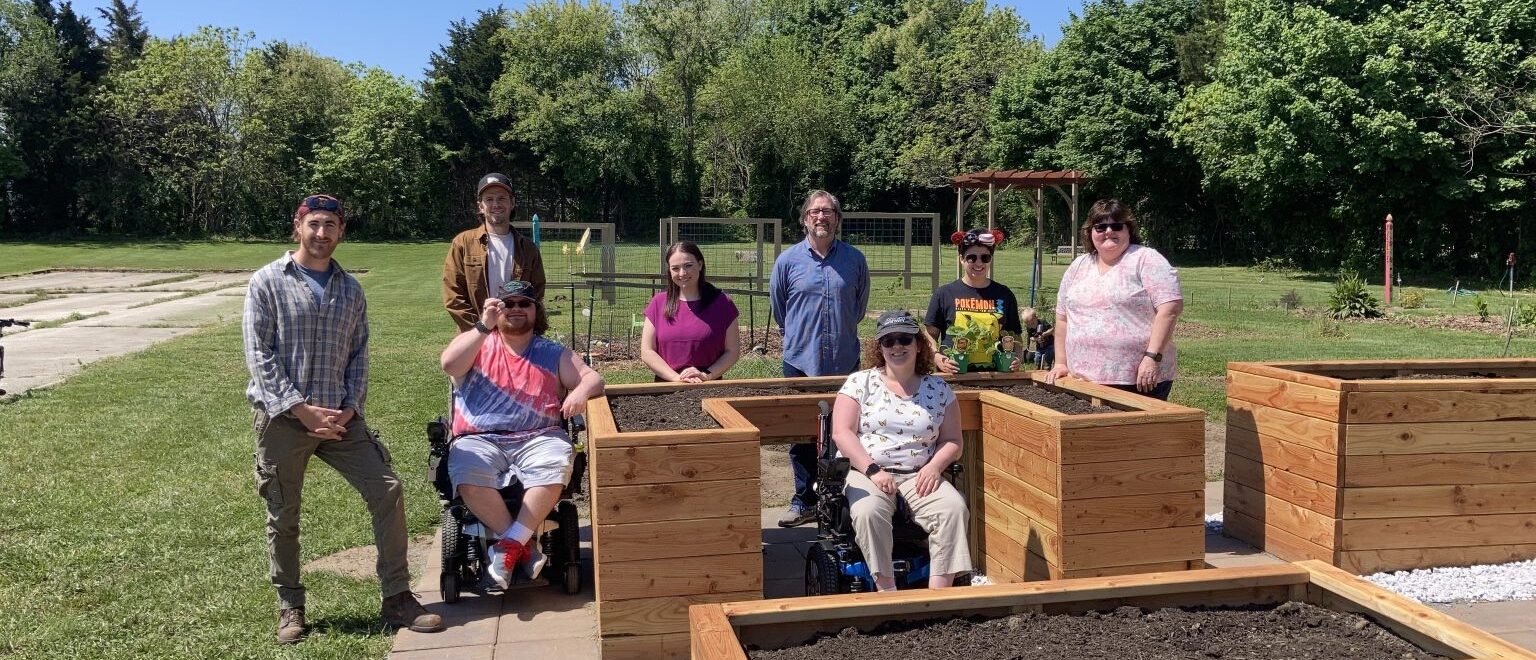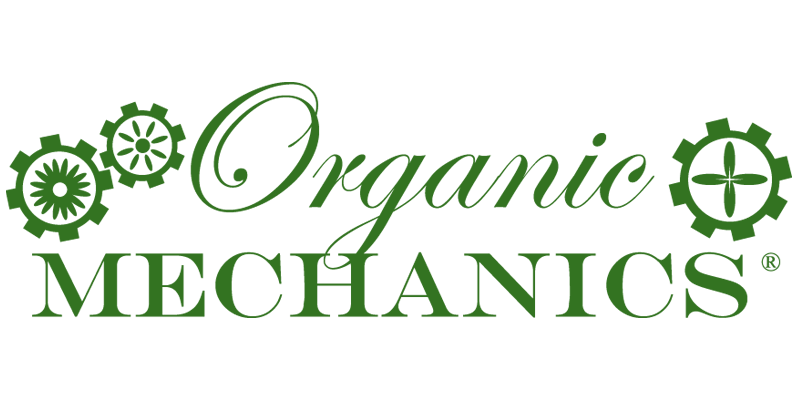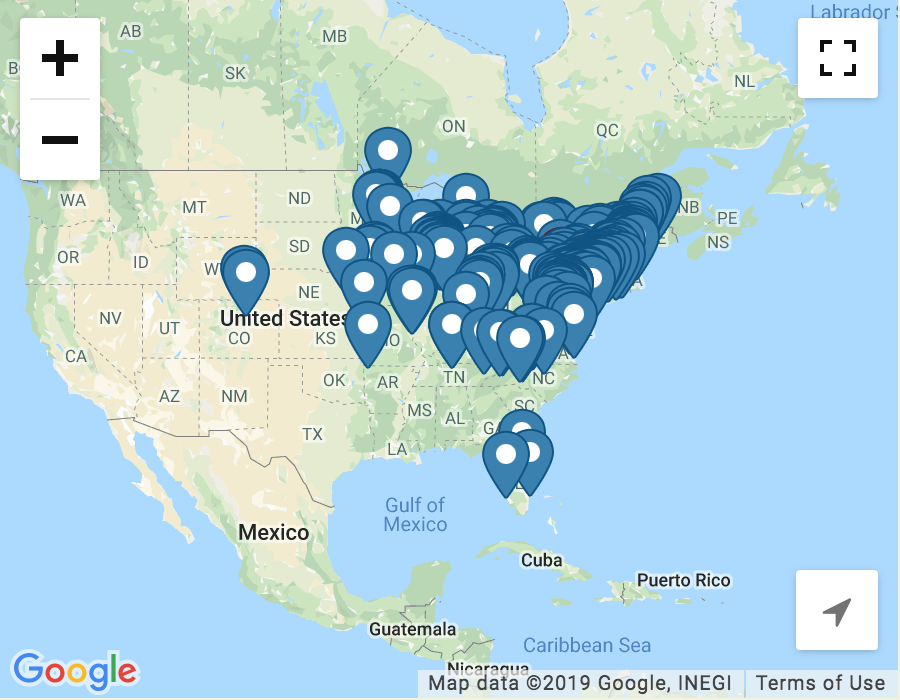If there is one thing we know about gardening, it’s that the word “community” is always implied. The act of gardening doesn’t take place in a vacuum. A “community” is there for support, to teach, to learn, to inspire, to applaud, to give, to receive, and to join in the effort, regardless if it’s a multi-plot community garden or a solo venture in a yard. So for November—the month that ends with a community harvest celebration—we are giving thanks to the communities that bring us all together.
Over the years we at Organic Mechanics have donated soils and supplies to more than 100 community gardens at schools, community centers, universities, and other organizations in our region. We do this because we know that to help gardeners become successful is to pass the knowledge and passion of gardening deeper into our communities. Our involvement also goes a long way in tackling the very real issue of food insecurity. We recognize that donating a few bags of soil to a school garden can lead to a lifetime interest in science, math, in how things grow, in the culinary arts, and so much more, not to mention some excellent meals after a harvest.
The Bullock Garden Project
Speaking of schools, that’s how the Bullock Garden Project got its start. Now a non-profit organization that helps establish gardens in communities of all sorts throughout New Jersey, founder, CEO, and special education teacher Sonya Harris’s initial objective in 2013 was to start a garden at her school to provide her students with alternative ways to learn math. “I knew absolutely nothing about gardening,” Sonya said, but that didn’t stop her from contacting Ahmed Hassan of the TV show “Yard Crashers” to learn about establishing a school garden. It took a year or more of working with Ahmed to educate herself before Sonya’s garden at the Dorothy L. Bullock Elementary School in Glassboro, New Jersey, got off the ground.
“Once that rabbit hole was open, I just fell down it,” Sonya said. She quickly learned how beneficial the garden would be not just for education purposes but for the students themselves, many of whom could be considered at risk due to special needs and food insecurity issues. During that first summer in the garden, Sonya’s passion for this “school garden as community garden” grew. “Families would come over and harvest, and I just fell in love with this community garden mindset.” The families would meet and mingle, and then they began requesting certain crops for their families. “It became a place of community, it was wonderful—and it was child-led, which made it even better.”
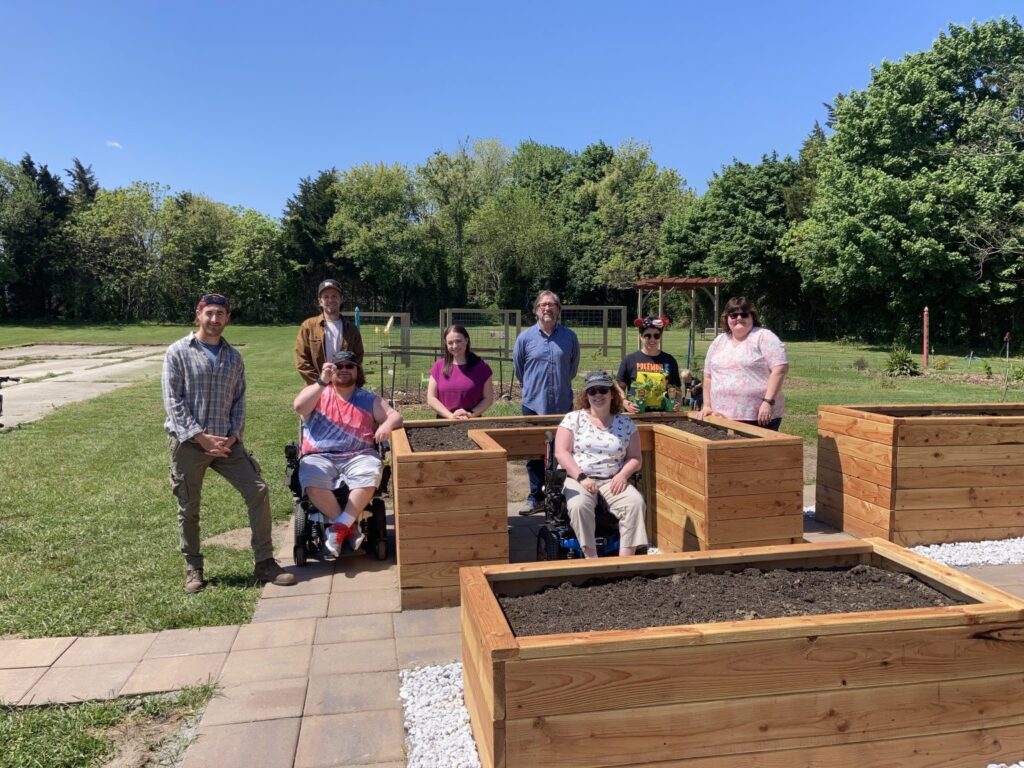
A family poses with their new garden beds at the Williamstown Community Garden, one that the Bullock Garden Project helped design.
In 2017 Sonya began going to other schools to talk about the work happening at the Bullock Elementary School, and this led to the founding of the Bullock Garden Project non-profit. The organization initially helped teachers replicate the Bullock Elementary School’s model and acted as an intermediary to help other schools access supplies. With the onset of Covid, the organization branched out to establish neighborhood gardens and provide seeds, Organic Mechanics soils, and gardening education. The Bullock Garden Project has now evolved into an organization that helps towns throughout New Jersey build their own community gardens all based around the same model—spaces that are inclusive, open, accessible regardless of abilities and with harvests that are shared by anyone.
The Bullock Garden Project exists thanks to donations from individuals and companies who see the value in creating community through gardening. Find out more about how you can support BGP at www.bullockgardenproject.org. You can follow BGP on Instagram and Facebook. It’s also fun to follow Sonya! Find here on Facebook, Instagram, TikTok and Twitter/X!
Delaware Center for Horticulture
Meeting gardeners where they are—a school, a neighborhood—is exactly what community gardening is all about. Sometimes those spaces are right in the heart of an urban environment. The Delaware Center for Horticulture, based in Wilmington, Delaware, operates two urban farms, helps support community gardens through the city, and also manages a public garden at their headquarters. All locations give community members an opportunity to participate in a volunteer capacity, while the urban farms offer folks the chance to garden on their own.
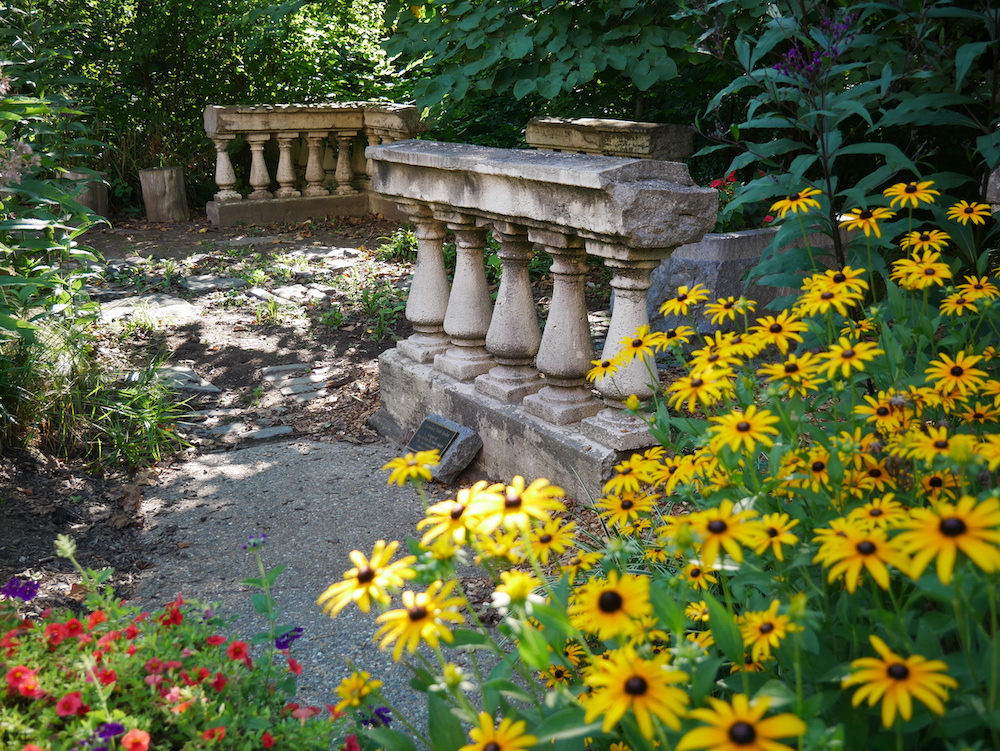
A serene scene in the rear garden at the Delaware Center for Horticulture’s headquarters in Wilmington.
Organic Mechanics has been involved with DCH over the last 15 years in numerous activities, including in conjunction with the Delaware Department of Corrections on a gardening wellness initiative that DCH used to deliver at the Baylor Women’s Correctional Institution in Wilmington. Organic Mechanics’ founder Mark Highland says his visit to the prison to conduct a class on the importance of healthy soils to grow healthy food was one of the most inspirational activities he’s participated in. “These women were so resilient!” Mark recalls. “Due to obvious reasons they cannot have traditional metal tools, but they made do with sticks. They literally were using sticks and branches as tools to dig and work the soil. They were inspirational in their quest to grow healthy food for use in the prison kitchen and culinary program and encouraged other inmates to join their gardening club. The enjoyment they experienced from working outside, in nature, and bringing forth life from the earth was obvious from their voices and the look on their faces while out in the garden.”
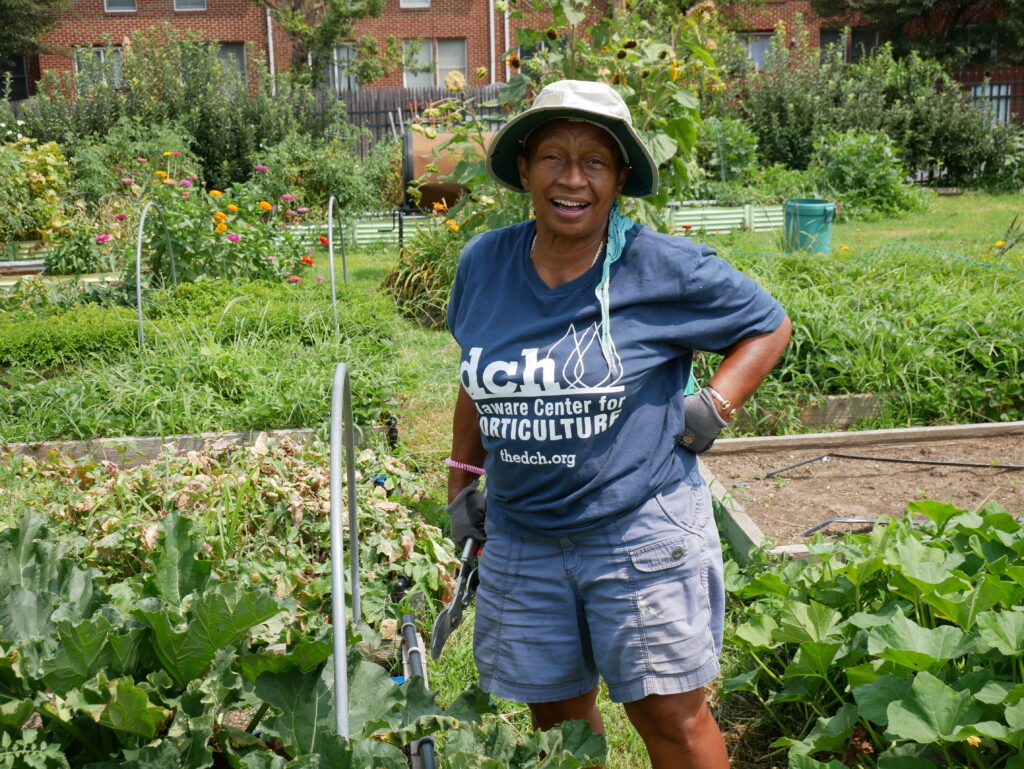
Adrienne Spencer, DCH’s Urban Farmer, working at the E.D. Robinson Urban Farm.
DCH now offers a program called Branches to Chances. This workforce development program for unemployed, underemployed, and previously incarcerated women and men aims to connect participants with entry-level positions in the horticulture industry, such as landscaping, tree maintenance, and park maintenance. After completing the program these men and women have valuable professional skills that they can then take out into the workforce where in-demand jobs are plentiful. With this program as well as the public garden, urban farms and community gardens, DCH is certainly fulfilling its mission to connect people to the power of plants.
Find more information about DCH at www.thedch.org, on Facebook, on Instagram, and on LinkedIn.
Get Involved in Community Gardening
If you are now inspired to become involved in community gardening, your own community is your first and best place to find local resources. Walk your neighborhood to see who’s gardening where. Search local real-life and online message boards for opportunities. Maybe reach out to your child’s teachers or school to see how you can be of service. If you’re lucky, you may even have an organization like the Bullock Garden Project or Delaware Center for Horticulture in your vicinity. The American Community Gardening Association has a garden locator, which you can find HERE. And if you don’t have a community garden already in existence near you, try your hand at creating one on your own. If you build it, others in your community will surely join in.

